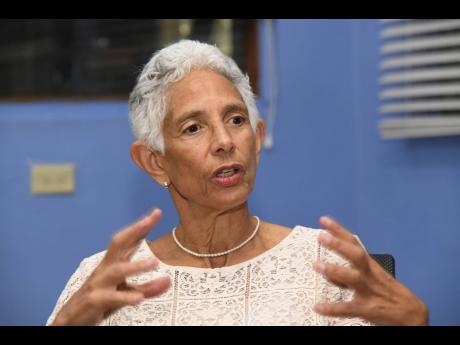Widen access to palliative care for life-threatening diseases, says Dingle Spence
The Government has been urged to deepen its investment in palliative care to improve access to disadvantaged Jamaicans in rural parishes.
That appeal was made by Dr Margaret Dingle Spence, senior medical officer of the Hope Institute Hospital, the only one of its kind in Jamaica that offers oncology and palliative care.
Expansion of community-level access to cancer patients and others in need of palliative care has been pitched as crucial symptomatic relief for persons struggling with life-threatening illnesses such as cardiovascular diseases, kidney disease, and chronic liver disease.
Travel expenses to Kingston are prohibitive for many Jamaicans desirous of care at the 60-year-old hospital, said Dingle Spence, who recently accepted an invitation to serve as commissioner for The Lancet Commission on cancer and health systems.
The Lancet is a distinguished medical science journal founded in England 200 years ago.
“Currently, if you live in Black River (St Elizabeth) and you have severe cancer pain and your doctors don't really know how to manage it, they'll send you here. First of all, do you know how much money it costs you and you're too sick to go on a bus so you have to charter a vehicle?” she said of the 149km (93-mile) distance in a Gleaner interview last week.
The lack of national coverage raises concern that Jamaica's health sector requires more professionals equipped with, at least, basic training in pain management and communication skills. Dingle Spence said it would be ideal for patients to be hospitalised in their parish, with the Hope Institute at the ready to offer further consultation via telephone.
Dingle Spence commended the efforts of the portfolio ministry in its primary healthcare reform programme, which seeks to improve existing standards by incorporating strategies for integration. Mechanisms are also being developed to coordinate healthcare services in the public and private sectors.
While she had special praise for the initiative of embedding palliative care, the senior medical officer has called for more early referrals.
“Don't wait till one week from death ... . I can still help you, but let me meet you sooner,” she said.
Dingle Spence lamented that there was a deficit of communication training of medical staff, such as doctors, within the field and that “sometimes people only find out that they have cancer when they come through the door of Hope Institute ... . That's crazy! That's a failure of your physician,” she said.
Dingle Spence noted that early referrals and the training of health professionals in palliative care were two critical goals the country should target.
“Communication and information are empowering, and I think that's one of the things that is not well understood here, and is not done well, unfortunately, and so you have a lot of people suffering in the uncertainty zone,” she added.
Dingle Spence, an associate lecturer at The University of the West Indies and consultant expert to the International Atomic Energy Agency, will be member of a team of nearly 35 individuals, inclusive of scientific advisers at the commission, who distil months of research in The Lancet on how small island developing states like Jamaica can improve healthcare systems.
The Jamaican is also a scientific adviser to The Lancet Commission on Global Access to Palliative Care and Pain Relief and member of The Lancet Commission Implementation Group.
Dingle Spence, a co-director of the Jamaica Cancer Care and Research Institute, said she is still motivated to work in the trenches.
“I'm a boots-on-the ground doctor, so most of my working life I've been at the bedside or in the clinic,” she said.

